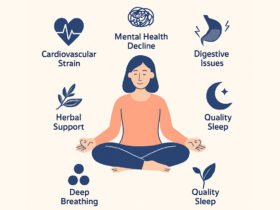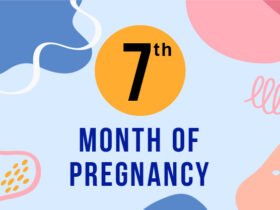Men: Did you skip breakfast this morning? If you regularly skip your morning meal may have an increased risk of heart disease, according to a new research by Harvard School of Public Health researchers.
It’s an attention-grabbing finding from a number of the nation’s top researchers, published Monday within the journal Circulation. But the research does have some big limitations: For one, it’s important to notice that simply grabbing breakfast – any breakfast in the least, albeit it’s something unhealthy like a doughnut – is not enough to protect your heart health. And eating breakfast is simply one among many healthy habits related to a stronger ticker.
In new research, researchers examined food frequency questionnaires (surveys determined to estimate actual food intake), and monitored the health of 26,902 male health professionals over 16 years, from 1992 to 2008. When the surveys started, the lads were between 45 and 82 years old.
The research found that men who skipped breakfast had a 27 percent higher risk of attack or death from coronary heart condition than those that reported they ate breakfast. So does that mean eating breakfast can lower the danger of heart disease? It’s not that simple – let’s take a closer look.
Of the quite 26,000 men within the research, only around 3,400 were self-reported breakfast skippers. And research participants were only asked once – at the beginning of the research – if they were breakfast eaters.
While the lads did report on their food frequency throughout the 16-year period, they were never asked again if they were breakfast eaters. This fact alone limits the impact of the findings, because the assumption is that eating habits remained an equivalent for the whole 16-year research period. It is also quite likely that some fraction of both the breakfast eaters and breakfast skippers changed their eating behavior.
Another key finding was that men who reported “eating late at night” had a 55 percent higher coronary heart condition risk compared to those that didn’t, but the subgroup of participants was very small, just 350 men, or about 2 percent. This small number, acknowledged by the authors, isn’t convincing evidence alone of increased risk.
Some associations remained confounded when compared. While cardiovascular risk seemed to go up within the breakfast-skippers, the info also found that risk was reduced with eating fewer times each day. For those self-reporting one to 2 meals each day (likely skipping breakfast, or maybe two meals each day), their risk was less compared to those reporting eating sixfold a day.
And when accounting for factors like body mass index, smoking, alcohol consumption and other factors, the findings were mostly attenuated, and therefore the connection between breakfast intake and cardiovascular risk was no longer meaningful.
This research supports the concept that cardiovascular risk factors might be modified by a variety of lifestyle factors – and eating breakfast is one factor that might impact on reducing the risk of heart disease.
The important health message is that it’s not just once you eat, but what you eat. A calorie-controlled breakfast of lean protein, some fruit and/or whole grain, for instance , are often a health plus. If you’re eating around 2,000 calories a day, you could consume anywhere from 200 to about 600 calories in the morning, depending on how you like to eat during the day. This could be a skim milk latte, a bowl of steel cut oats with fruit and nuts, or scrambled eggs or a egg-white omelet with veggies. Grabbing a high calorie, low nutrient breakfast, on the opposite hand, isn’t a health plus.
Apart from breakfast, you’ll also keep your heart healthier by staying at a healthy BMI, taking a 20 to 30 minute brisk walk a day , moderating your stress level, drinking in moderation and, if you smoke, quitting.
Adding breakfast to your day alone won’t reduce your risk of heart condition . But it’d be a warning call , and an honest reminder to stay healthy eating on target for the entire day.
Skipping breakfast and heart disease: Not so simple

What’s your reaction?
Love0
Sad0
Happy0
Sleepy0
Angry0
Dead0
Wink0













Leave a Reply